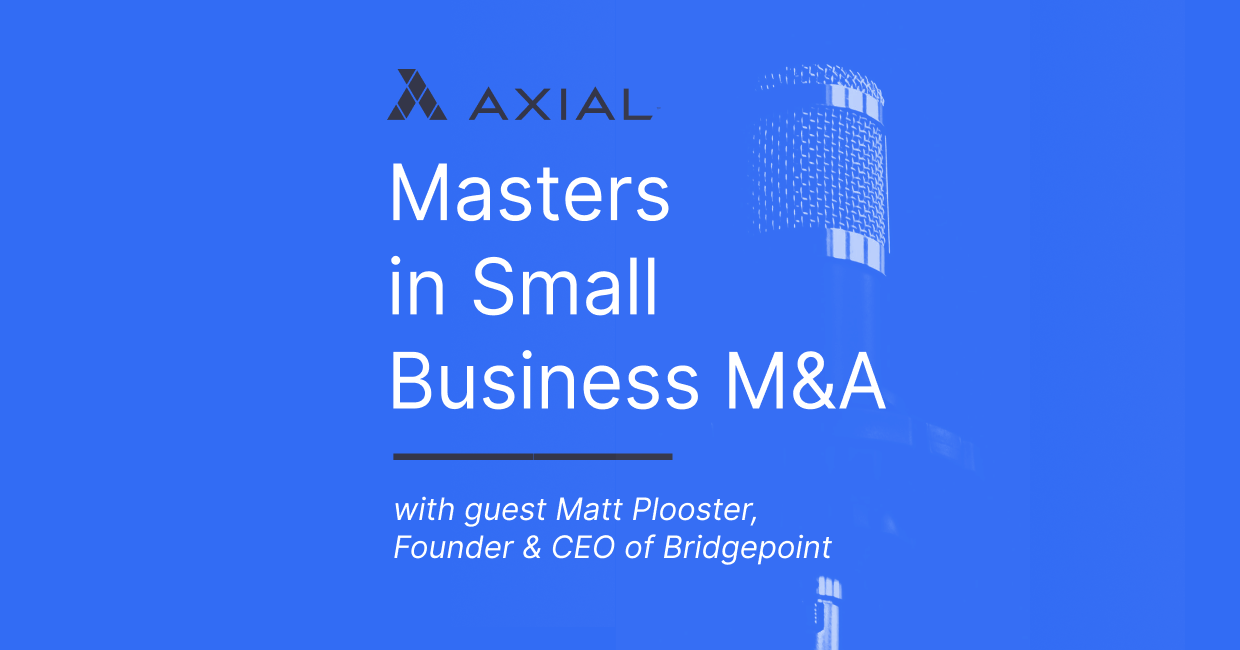
Private Credit Arrives in the Lower Middle Market: A Conversation with Bridgepoint’s Matt Plooster
Today’s guest is Matt Plooster, founder and CEO of Bridgepoint, a boutique investment bank based in Omaha, Nebraska. We start…
The focus of U.S. based investment banks is ever-changing based on market trends, but as we enter the second quarter of 2022, one thing is clear: healthcare M&A is hot. Investors are hovering and retiring entrepreneurs and business owners in the space are looking to exit. COVID-19 has also prompted an uptick in home health and hospice services, and healthcare information technology continues to evolve at a rapid clip.
Despite this rapid industry growth, running an investment bank focused largely on healthcare is not for the faint of heart. Just ask Neil Johnson, co-founder and managing partner of Lawrence, Evans & Co., LLC [LE], a Columbus, OH-based investment bank, founded in 2003. With healthcare comes government regulations, revenue complications, and instability, he said. And M&A deals can be especially tricky. For clients with under $250 million in annual revenue, LE provides advisory, capital raising, turnaround, and other services. Today, the firm spends half its time representing sell-side clients and roughly 40% of its hours on capital raising and helping businesses grow or restructure until they are ripe for a sale.
With more than 20 years of healthcare investment and private equity experience, Johnson — along with his team — walks clients through these challenging processes, helping them to make the best personal and financial decisions. Axial spoke with Johnson recently about his firm, the healthcare landscape, and the future of healthcare M&A.
NJ: Having the healthcare focus is important. Healthcare creates a lot of complexity with revenue and with recognizing asset valuations, and gives heartburn to a lot of banks and investors because there is a stroke-of-the-pen risk where government agencies can change regulations and cut revenue overnight.
We have expertise in areas like revenue cycles, health IT, post-acute home-health hospice, and behavioral health — and being a smaller firm with this expertise, we can help navigate the choppy waters of a highly regulated industry, to make sure the owners have the best options available to them. We understand the regulatory landmines, and we make sure we address issues now so they don’t blow up the deal later on.
NJ: It’s the explosion of IT driving healthcare. That’s where the investment is going because that is what is required. We need to have systems that hold data, that communicate with the payers and providers and others, to be efficient and to help patients. The data and the systems are the heart of everything.
There are a lot of tailwinds. Healthcare is not going away, and is ever evolving and changing. Even if things moved to a single-payer system, it takes a lot of expertise to navigate the silver tsunami of business owners looking to transact. Most of our buyers are private equity firms, strategics, looking to add on to an existing business. Healthcare private equity has outperformed any other sector for the past 20 years.
NJ: Health IT, as well as post-acute home health and behavioral health, and selectively some physician groups like dental. We are more and more active in managed IT and cyber services. We stay away from biotech and medical device sectors. We like providers and services with cash-flow assets, and businesses that make money.
NJ: Everything. What’s not hot? Home healthcare was out of favor for a while because Medicare had cut reimbursements, but COVID has shined a light on home-health services and a need for it, as people want to stay out of hospitals and nursing homes. For home health and hospice, valuations are 50% to 100% more today than they were pre-COVID. Services like outsourcing bills in an ever-complex environment also continue to grow.
NJ: We find unique companies that have riches in the niches. These entrepreneurs are growing their businesses, or they need help with capital market services. They need someone who understands healthcare and the volatility within that segment. We find a tremendous opportunity to add value to the entrepreneur.
NJ: We try to stay on top of mind for emerging segments. Healthcare cryptocurrency, for instance, is a hot area, and nobody has really deep dived into this. Are we going to make money on it? Probably not, but it was an educational piece. We had a 40% click-through on our healthcare cryptocurrency email, sent to our proprietary list. We’re trying to keep LE on the radar.
NJ: We’ve had a lot of deals fall apart so it has not really been a good year for us. But right now we have a lot of pitches out there, and a few deals going under letters of intent that should have been under LOI last year but fell off for various reasons. Most of the issues are valuation. Sellers want more and unfortunately, if their numbers are not performing, we can’t get that far. Then we put a pause on it and say, “Let’s revisit it in six months to a year.”
NJ: There are a lot of clouds emerging with interest rates, with Ukraine, and with government regulations. However, there’s a lot of money out there, a lot of aging entrepreneurs and owners, and a lot of private equity funds that are focused on healthcare or that want to get into healthcare because of the outside returns they get from investing in these companies. Investors have to provide a turn of value just to stay competitive. This will continue until either the government does something stupid, or we see a bigger correction in the general marketplace. It’s kind of a perfect storm right now, where everything is favorable.
NJ: We may be in the greatest two, three, if not five years of our lifetime: low taxes, low interest rates, and more money than ever before. There’s nothing wrong with taking some cash off the table or de-risking yourself during this time, but you need to be reasonable. Entrepreneurs and business owners also need to keep in mind that this process still takes time. It’s not like selling a house — it’s a regulated, complex business that they’ve built and they need to make sure they are hiring the right professionals to get through the process, to help them achieve their goals.
